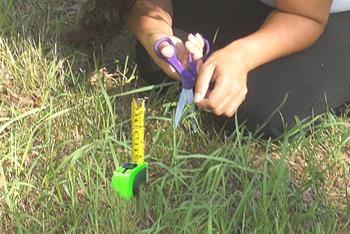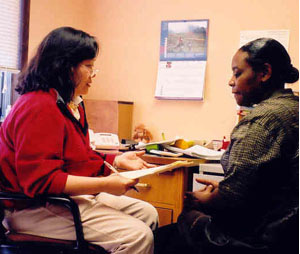Getting My Eyes Off of Myself
A cheerful heart is a good medicine,
but a downcast spirit dries up the bones. Proverbs 17:22 NRSV
We visited a church with our kids on Sunday. The pastor, in trying to make a point about honesty, addressed the dynamic that occurs when friends meet together: “How are you?” “I’m fine.” He concluded that often the “I’m fine” is actually a lie because we aren’t fine.

But are we?
As Christians should we have any opportunity for griping or complaining, moaning or groaning? Or are we actually stating a truth when we say “I’m fine,” a truth that perhaps we really don’t embrace but which is a truth nonetheless? Paul wrote:
Getting My Eyes Off of Myself Read More »









 who at one time would have been hospitalized for their problems. As many as half of them are also addicted to alcohol and/or drugs. Many are “self-medicating” — using addictive substances to cope with their mental problems. Social service professionals usually do not like working with these “dually diagnosed” people because they can be so demanding and time-consuming. They can be too destructive and troubled for the typical addiction recovery program. And, mental health workers shy away from them because they often do not stay sober long enough for treatments to be effective. So, they end up at the rescue mission.
who at one time would have been hospitalized for their problems. As many as half of them are also addicted to alcohol and/or drugs. Many are “self-medicating” — using addictive substances to cope with their mental problems. Social service professionals usually do not like working with these “dually diagnosed” people because they can be so demanding and time-consuming. They can be too destructive and troubled for the typical addiction recovery program. And, mental health workers shy away from them because they often do not stay sober long enough for treatments to be effective. So, they end up at the rescue mission.